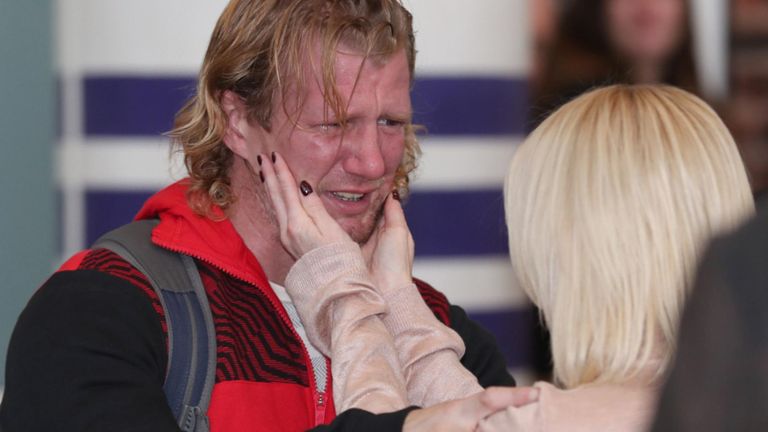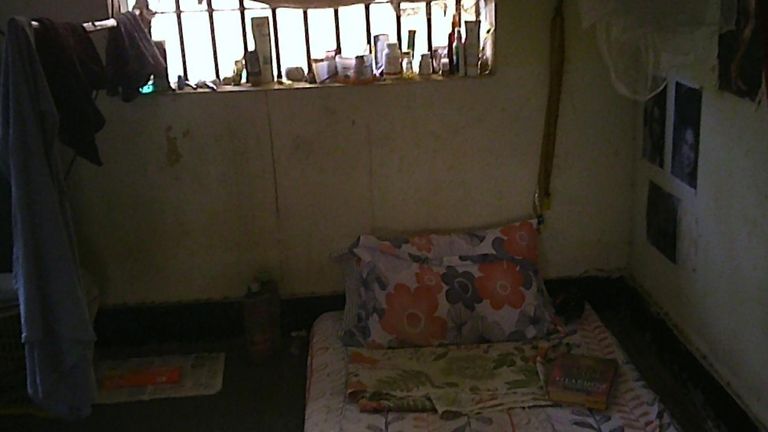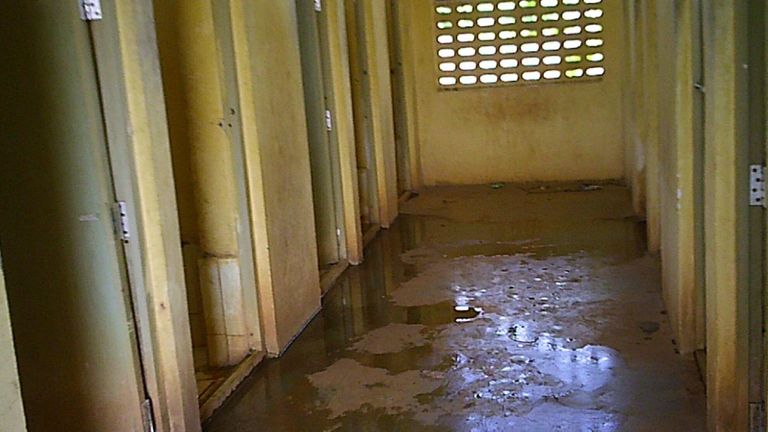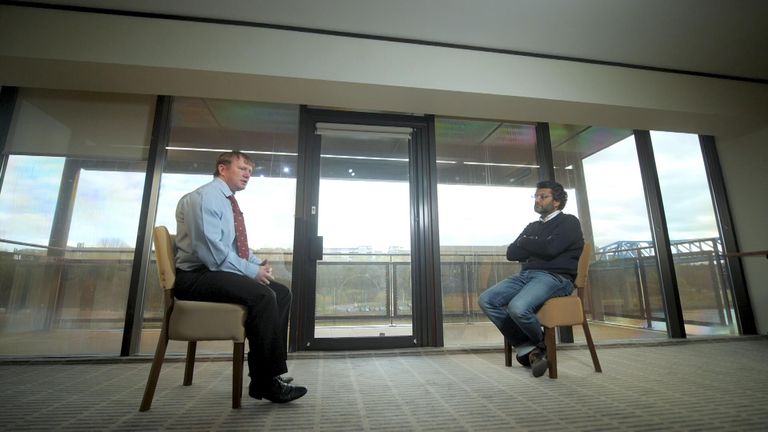Nick was one of six British men working as security guards on the anti-piracy vessel in the Indian Ocean. They were charged with carrying unlicensed weapons and sentenced to five years in jail.
The reaction from his mother on the other end of the phone still haunts Nick Dunn.
“Having to hear me mam screaming like a wild banshee, like a wild, injured animal down my phone really upset me,” he recalls.
“Even to this day, it still upsets me. It’s still raw. As much as I wanted to go home to my family, I had to take what was coming to me. I’m now going to prison for five years for a crime I’ve not committed.”
Nick Dunn has lived through one of our worst nightmares.
Locked up in a squalid, foreign jail, thousands of miles from home, for a crime he did not commit.Advertisement
This story contains details that some may find distressing.

‘Mam, I love you – please try not to worry about me’
He had just broken the news to his mother that he had been found guilty by an Indian court of carrying an unlicensed weapon.
The fact it still upsets and still feels raw gives us an idea of Nick’s ordeal. It was five years ago.
He recalls the moment the Indian coastguard boarded the MV Seaman Guard Ohio in October 2013 and arrested the crew.
“That’s when it dawned on us. We were not going to the hospital, we’re actually going to a prison,” he says.
“And that’s when we all had to make our phone calls back to our families.
“But I was like: ‘Mam, I’m getting arrested. I don’t know when I’ll be released. I don’t know when I’ll next speak to you, but I love you, and please try not to worry about me.'”

Coping with life behind bars
Nick was one of six British men working as security guards on the anti-piracy vessel in the Indian Ocean. They were charged with carrying unlicensed weapons and sentenced to five years in jail.
It would take all his mental and physical strength to cope with incarceration.
Nick would spend the next four years of his life inside some of India’s worst prisons full of violent criminals in oppressive heat, battling sickness.
He says it was his military training, his life as a paratrooper in Afghanistan and Iraq, that gave him the skills to survive.
“When that cell door shuts at the end of the night, and you’re locked in that cell, and the turning of the keys make the hairs stand on the back of your neck and send a cold shiver down your spine, it all comes back,” he says.
“The memories of your family, the good times, the pain, the suffering comes. And you just sit there, and you just go: ‘What on earth is going on? How am I gonna survive this?'”

‘You’ve got to have that glimmer of hope’
He survived by trying to stay positive, taking each day as it came, and by convincing himself that he would one day return to England and be reunited with his family.
Nick and his fellow British prisoners – dubbed the Chennai Six after the Indian city where they were being held – made weights for training from rocks and scavenged materials they found in the prison yard.
Keeping physically fit was an important distraction from the mundaneness of prison life. When feeling particularly low, Nick would go through old photographs to remind him of his previous life in England’s North East. He liked to read and play board games with the other inmates too.
“You know, like playing chess and stuff like that and just trying to get by the days. That’s the best way of coping. And making sure you’re a bit active, and you’re not sat festering in yourself because it will dawn on you, and you can lose your mind but like I say you’ve got to keep grounded. You’ve got to have that glimmer of hope.”

Overcrowded cells and violent inmates
Nick says he was exposed to the violent Indian gangs that targeted the English prisoners. He says he saw a prisoner’s throat cut open in one attack by a fellow inmate.
He describes prison life as “hell”. The overcrowded cells were infested with flies, mosquitos, rats, and even snakes.
He says that once he became so ill he became covered in his own vomit and faeces, and he broke down, crying to see his mother again.
At one point Nick was so undernourished, eating only one basic meal a day, that he lost 10kg in weight.

‘You realise what freedom really means’
The breakthrough finally came in 2017 when a Chennai appeal court acquitted the men. Nick was finally free to return home. He says his joy at the news was tempered with disbelief because there had been so many dashed hopes before.
“When those prison doors open and you step out, then yeah, you know you’re not going back inside that prison,” he says.
“It’s like your heart feels like it’s bursting out of your chest because yeah, you want to believe it. But in the back of your mind, you’re thinking: ‘Is this a trick? Is this a mind game?’
“And then you’re getting into the embassy vehicle, and you’re driving away, feeling the air con for the first time in a very long time. Then yeah. It’s over. It’s over, and you are trying your best to hold back the tears.
“But it’s too hard. The tears come, and that’s when you realise what freedom really means.”
Every day, Nick’s memory of his living hell inside an Indian prison fades a little more. But he knows he will never, ever be able to forget his ordeal.




